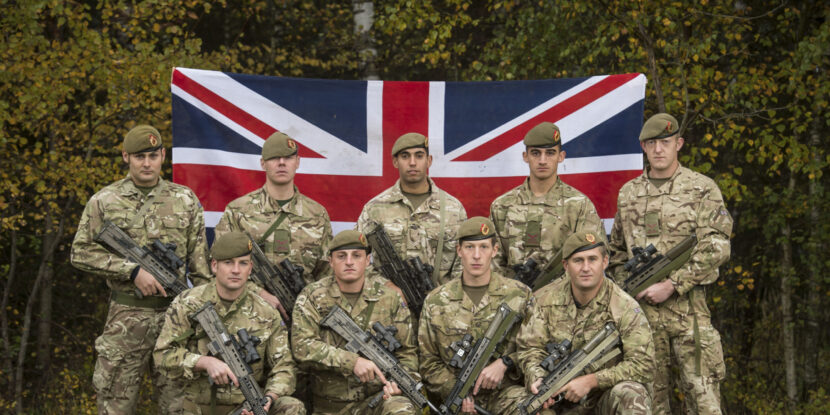
PULSE POINTS:
❓What Happened: Jury selection begins in Sean Combs’s federal criminal trial.
👥 Who’s Involved: Sean Combs, Cassie Ventura, prosecutors, defense attorneys, and jurors.
Your free, daily feed from The National Pulse.
📍 Where & When: Lower Manhattan, Monday, May 5, 2025.
💬 Key Quote: “I would think the prosecution is looking for older people, I think they’re certainly looking for law and order people,” said Dr. Jo-Ellan Dimitrius, who has been consulted for dozens of jury trials.
⚠️ Impact: If convicted, Combs could face decades in prison.
IN FULL:
Jury selection is commencing today in the federal criminal trial of music mogul and Democrat ally Sean Combs (also known as Diddy, P Diddy, or Puff Daddy), taking place in Lower Manhattan. Combs, who has pleaded not guilty, is facing serious charges including racketeering conspiracy and sex trafficking. The charges stem from allegations of transporting sex workers across state lines and coercing women into participating in sex acts at drug-fueled parties. Combs’s legal team maintains that all activities were consensual.
The 55-year-old’s legal troubles began in November 2023 when singer Cassie Ventura filed a civil lawsuit against him, alleging rape, sex trafficking, and years of physical abuse. Combs settled the civil suit swiftly, but it triggered a criminal investigation. This led to federal raids on his properties in Miami and Los Angeles, resulting in the seizure of multiple devices. Combs has been held at a Brooklyn jail since his arrest in 2024.
As jury selection gets underway, experts suggest that the prosecution will seek older jurors who are likely to favor law and order. They will also be interested in prospective jurors’ views on the Me Too movement and experiences related to sexual assault. Many legal experts note that the jury selection process could take far longer than expected during any similar trial, as finding jurors who are relatively unaware of the case could prove difficult.
Ventura is expected to testify alongside three others who will remain anonymous. They are anticipated to provide testimony about being drugged and forced into participating in what have been described as “freak offs.” The trial itself is projected to last up to eight weeks, with the outcome determining whether Combs could spend decades behind bars.

PULSE POINTS:
❓What Happened: Nearly half of Britons surveyed say they would refuse to fight for their country “under any circumstances.”
👥 Who’s Involved: Ipsos survey respondents, Richard Gill, a former British Army officer.
Your free, daily feed from The National Pulse.
📍 Where & When: United Kingdom, ahead of Victory in Europe (VE) Day commemorations on May 5.
💬 Key Quote: “We’ve stopped teaching pride in our country, its history, and its values… A nation unsure of itself cannot expect its people to defend it. That must change.” — Richard Gill.
⚠️ Impact: The findings highlight a decline in patriotic sentiment, with significant gender and political divides.
IN FULL:
A recent Ipsos survey reveals a significant decline in patriotic sentiment among Britons, with nearly half of those surveyed expressing an unwillingness to fight for their country “under any circumstances.”
The survey, which queried over 1,000 adults, found that only 35 percent of respondents would be willing to take up arms in a time of war, while a notable 48 percent stated there were no conditions under which they would go to war for Britain. An additional 17 percent said they were unsure of their stance.
The survey results emerge as the United Kingdom prepares for Victory in Europe Day (VE Day) commemorations, marking 80 years since the end of the Second World War, with celebrations including a military procession through central London on May 5.
Richard Gill, a former British Army officer with service in Iraq and Afghanistan, commented on the survey’s implications, suggesting a “deeper national malaise” as the root cause. He warned, “We’ve stopped teaching pride in our country, its history, and its values. A nation unsure of itself cannot expect its people to defend it. That must change.”
The survey also uncovered notable gender and age disparities. While nearly half of the men surveyed (49 percent) expressed a willingness to fight, only 21 percent of women shared the same sentiment. Among younger respondents aged 18 to 34, 42 percent indicated they would volunteer, whereas willingness significantly decreased to 28 percent among those aged 35 to 54, with over half of this group asserting they would never take up arms.
Political affiliations also played a role in respondents’ willingness to fight. Supporters of Nigel Farage’s Reform Party were the most inclined to defend their country—despite the establishment media and political parties attempting to paint them as Russian stooges—contrasting sharply with supporters of the fanatically pro-European Union (EU) Liberal Democrats, who were the least likely to do so.
Mass migration has also likely been a contributing factor in the strength of feeling towards the nation, with many first and second generation migrants more likely to fight for the nation from which they came, rather than the one in which they reside.
show less

 1 month ago
2
1 month ago
2








 English (US) ·
English (US) ·